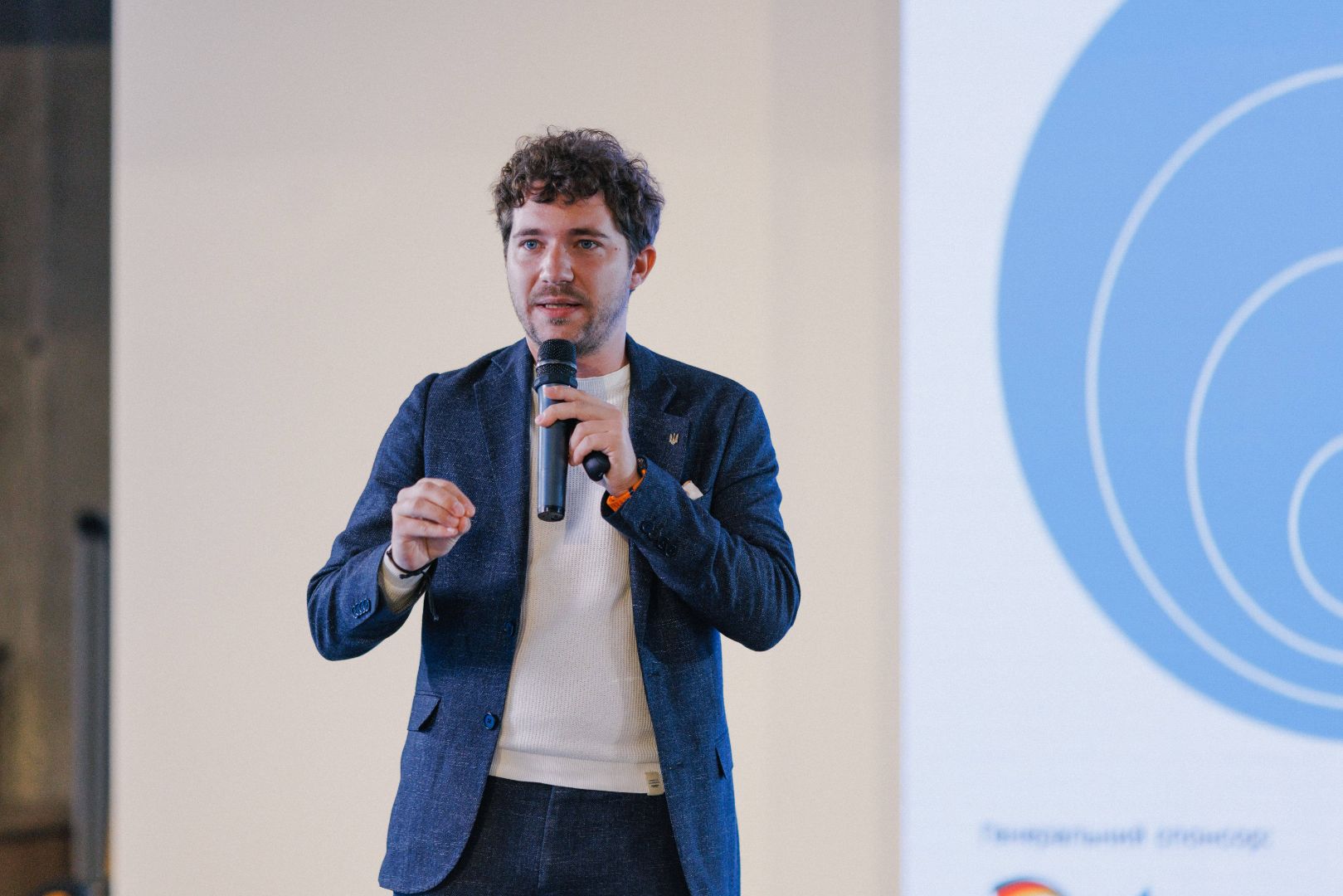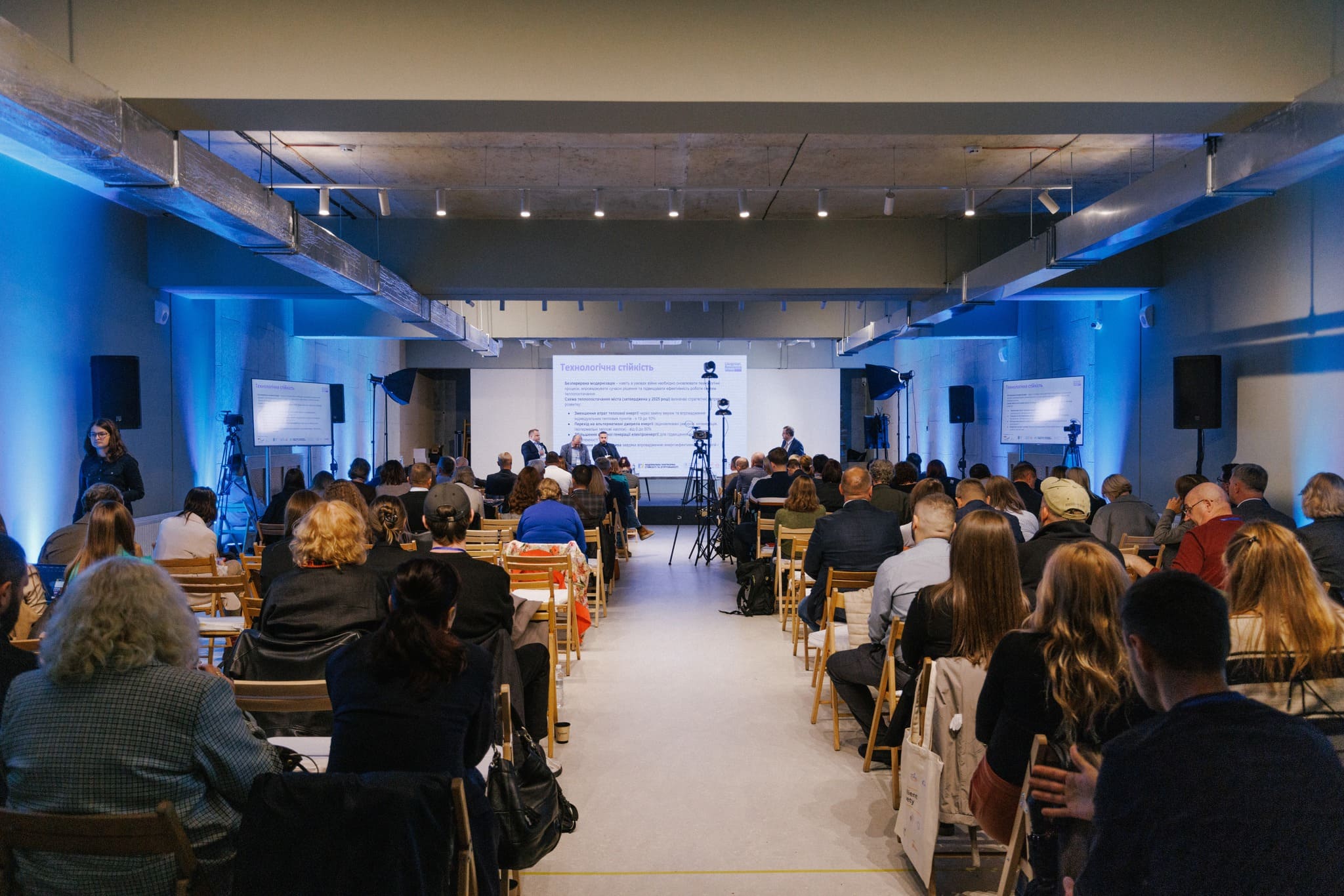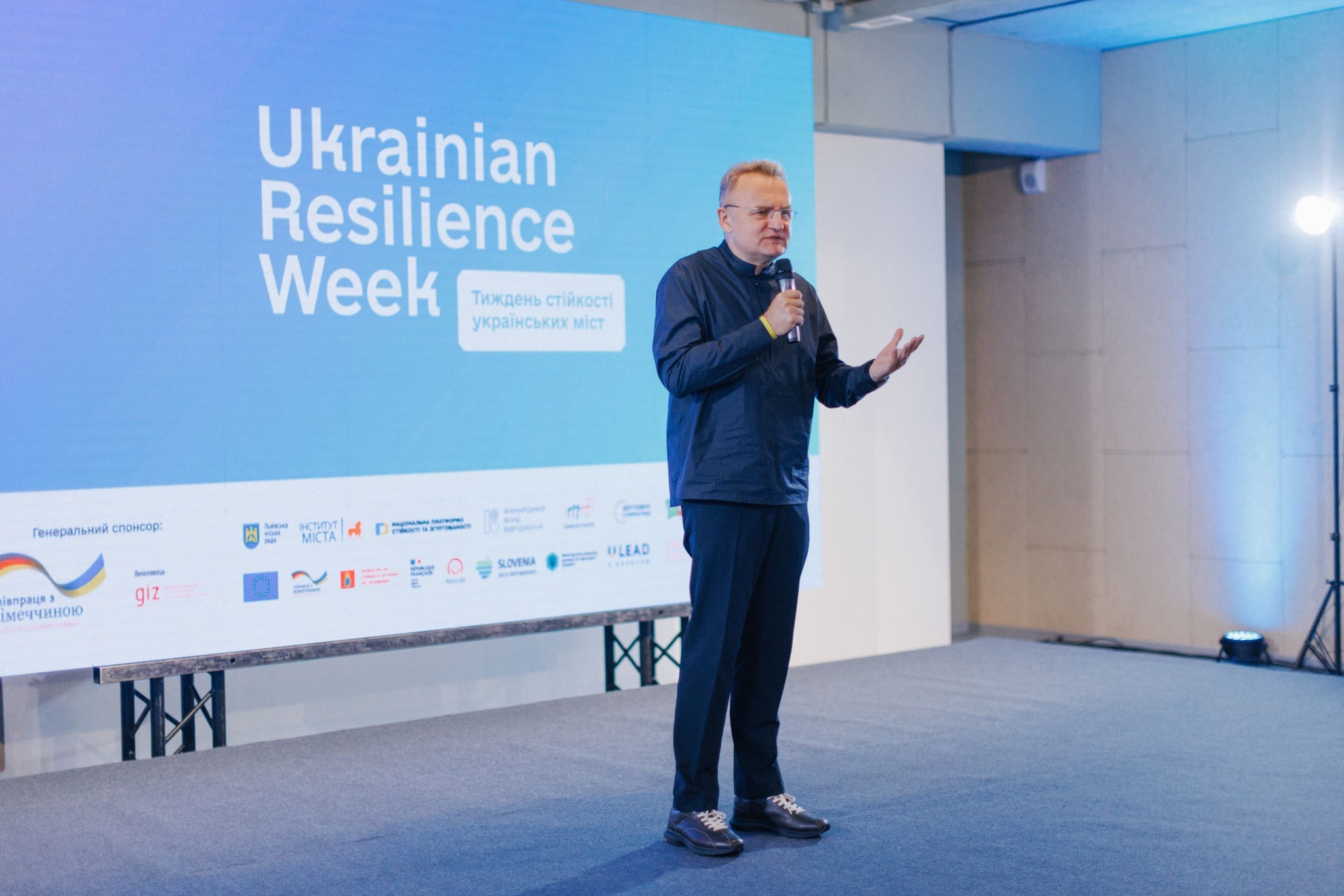The Ukrainian Center for Independent Political Research and the National Platform for Resilience and Cohesion were among the partners of the Ukrainian Resilience Week 2025 forum, which took place in Lviv. This event is an annual forum where local governments, experts, and international partners join forces to strengthen the resilience of Ukrainian cities.
The National Platform and UCIPR teams took an active part in discussions on community resilience, risk assessment, memory policy, and the role of citizens in ensuring resilience during wartime.
Following the forum, Valeriia Skvortsova, Executive Director of the UCIPR, emphasized that the Ukrainian civil society sector has become one of the key drivers of social resilience, demonstrating its ability to adapt to challenges and develop new approaches.
"Communities, volunteer initiatives, and civil society organizations play a central role in supporting the country's vital functions and strengthening its democratic institutions. It is the activity of civil society, together with the heroism of our defenders, that forms the foundation of Ukrainian resilience," she said.
The key thesis uniting the experts' speeches is that Ukrainian resilience is based on citizens as active agents, rather than as an additional resource the state mobilizes.
Political scientist and co-founder of the National Platform for Resilience and Cohesion, Oleh Saakyan, presented the Ukrainian vision of resilience, which differs from the models of EU and NATO countries.

"While in EU and NATO countries, society is seen as an 'additional' or 'engaged' resource for ensuring stability, Ukraine, relying on resistance practices, proceeds from the active role of communities and societies. The same practices show that sustainability is always a dynamic process, and the "formula for sustainability" consists of five elements, the expert emphasized.
He outlined these elements: democratic values and freedom, self-organization, social cohesion at the horizontal and vertical levels, self-defense (in particular, volunteer battalions), creativity, and social innovation.
Volodymyr Lupatsii, co-founder of the National Platform, spoke about integrated risk assessment, which allows decisions to be made based on data. During the panel discussion "How to plan cities taking into account threats?", he emphasized that the lack of a systematic risk assessment is a risk.
Volodymyr Lupatsii referred to the results of an expert survey on the assessment of risks to social stability and cohesion in five frontline regions, which covered 19 categories and five measures of stability, ranging from social cohesion to information security.
An important conclusion was the understanding of the need to create a National Risk Register and a Risk and Threat Assessment Center, which will allow identifying "red zones" and developing effective response strategies.

In turn, Andriy Darkovich, a researcher at the Center for Democratic Resilience and the KSE Institute, presented long-term data proving that resilience is not an abstraction, but a concrete resource formed through cooperation between communities, international partners, and residents.
According to the research results, communities in Ukraine have already overcome the phase of low readiness, the average level is growing, and the development of interaction networks is needed to maintain a high level.
"Resilience is always dynamic. It is shaped by cooperation, trust, and mutual support," the expert noted.
The forum placed a special emphasis on memory policy as an element of social cohesion. The panel dedicated to this topic was moderated by Yulia Tyshchenko, co-founder of the National Platform and head of the UCIPR Democratic Transformation Support Program. She noted that the creation of a policy of memory requires a broad public discussion about national identity and the impact of war on it.
“There are no universal tools that can simply be ‘applied’. Communication and dialogue come to the fore. Balanced decisions are born in conversations between the families of the deceased, veterans, and communities. Such dialogues must be professionally organized, with respect and understanding," she emphasized.
Lviv Mayor Andrii Sadovyi also stressed that local self-government is the foundation of the state. After all, cities and communities often demonstrate stability and creativity even in times of political crisis, which European countries are facing.

"We must give our European colleagues the opportunity to understand what resilience is. Because it is impossible to feel it from textbooks — only when you live in a city under attack from drones and missiles, but continue to live, educate children, work, and rebuild," he said.
One of the key international speakers was Magnus Kvant, co-founder of the Nordic Urban Resilience Institute. He presented his vision of how cities should plan their development taking into account risks and threats.
According to him, a modern city is a complex system of energy, information, goods, services, transport, and finance flows. The task of city authorities is to ensure the continuity of these flows even in times of crisis through spatial analysis, forecasting, and the involvement of all stakeholders.
Ukrainian Resilience Week promotes the exchange of knowledge, tools, and practices that help communities adapt to the challenges of war and mobilize resources to implement systemic changes. Based on the results of the discussions, the participants developed a resolution of the Ukrainian Cities Resilience Week, which contains practical recommendations to the government, parliament, and President of Ukraine regarding Ukraine's resilience at the national, regional, and local levels.
The forum was held with the support of the project "Strengthening the Resilience of Cities in the Field of Life Support for Urban Communities in Ukraine (SUR)", which is part of German transition assistance provided on behalf of the German Federal Ministry for Economic Cooperation and Development (BMZ) and implemented by Deutsche Gesellschaft für Internationale Zusammenarbeit (GIZ) GmbH.
